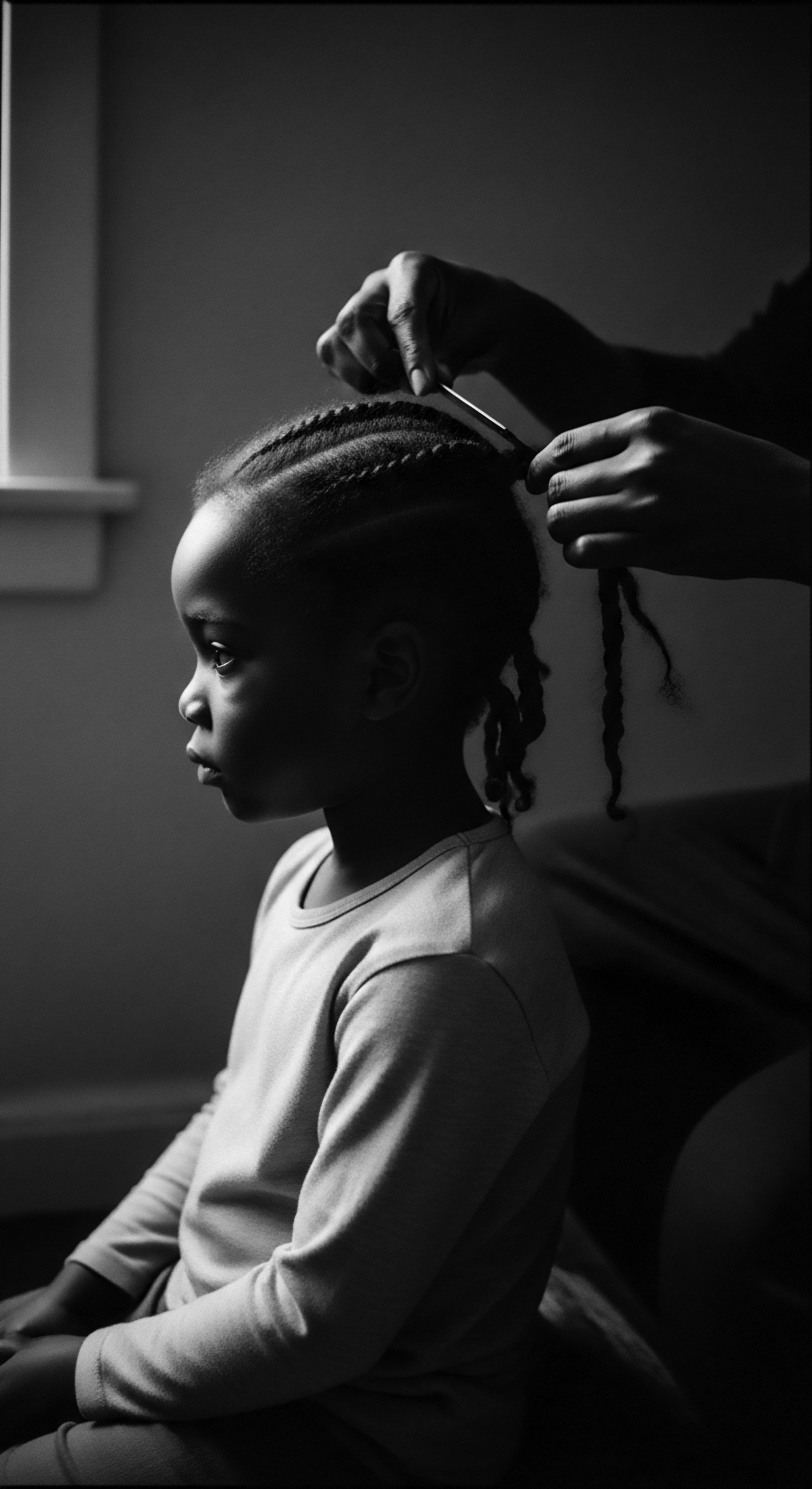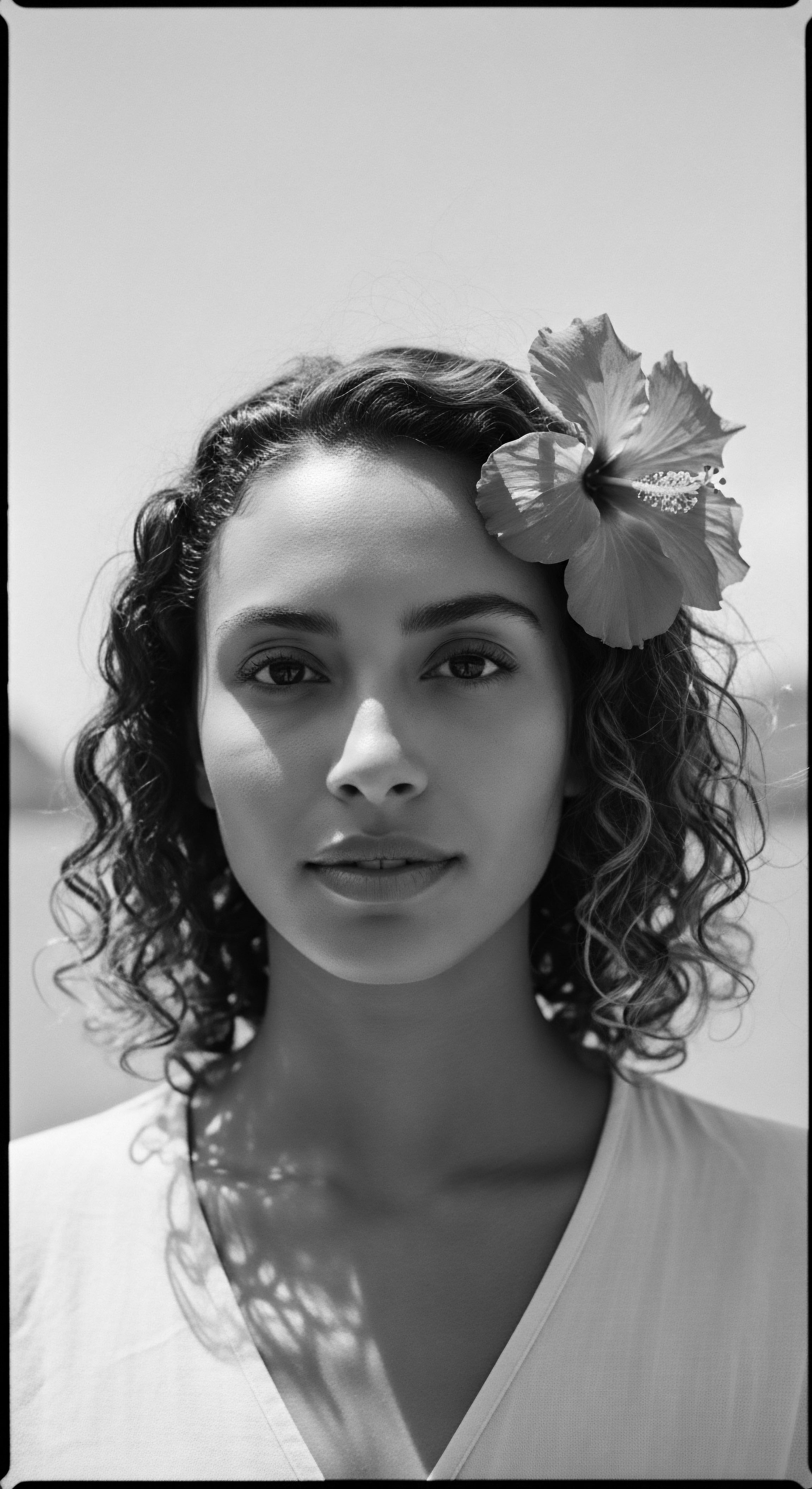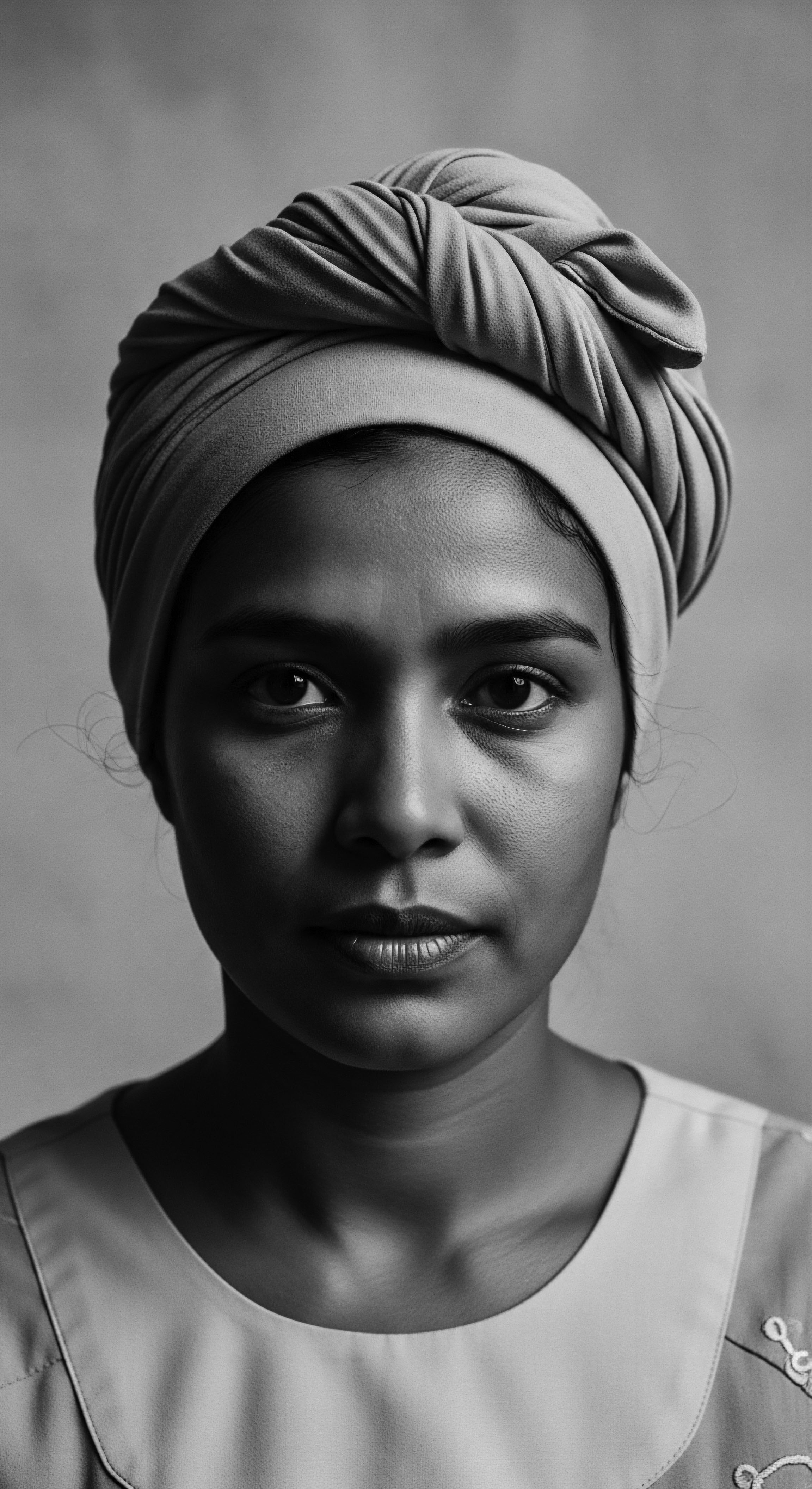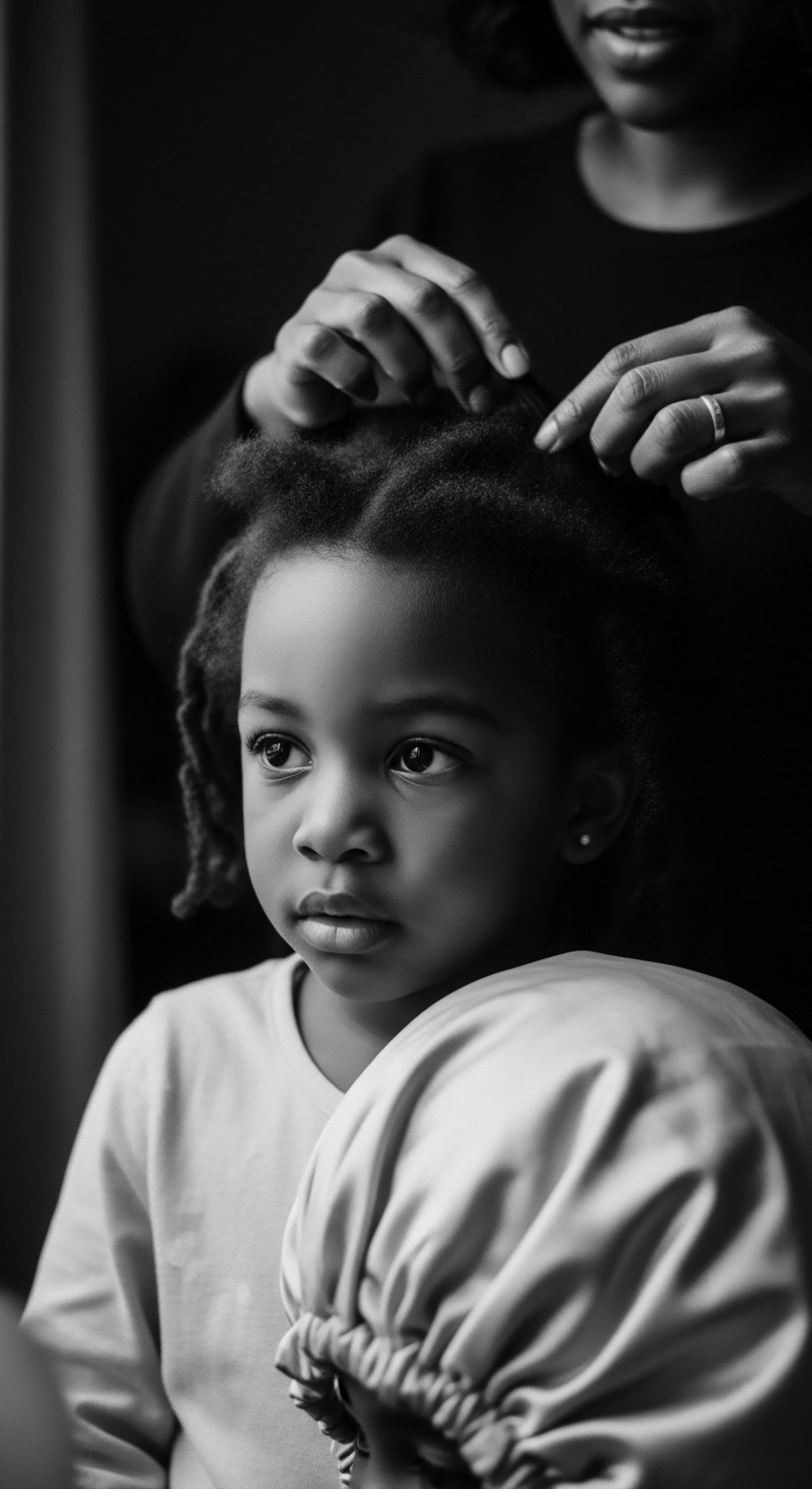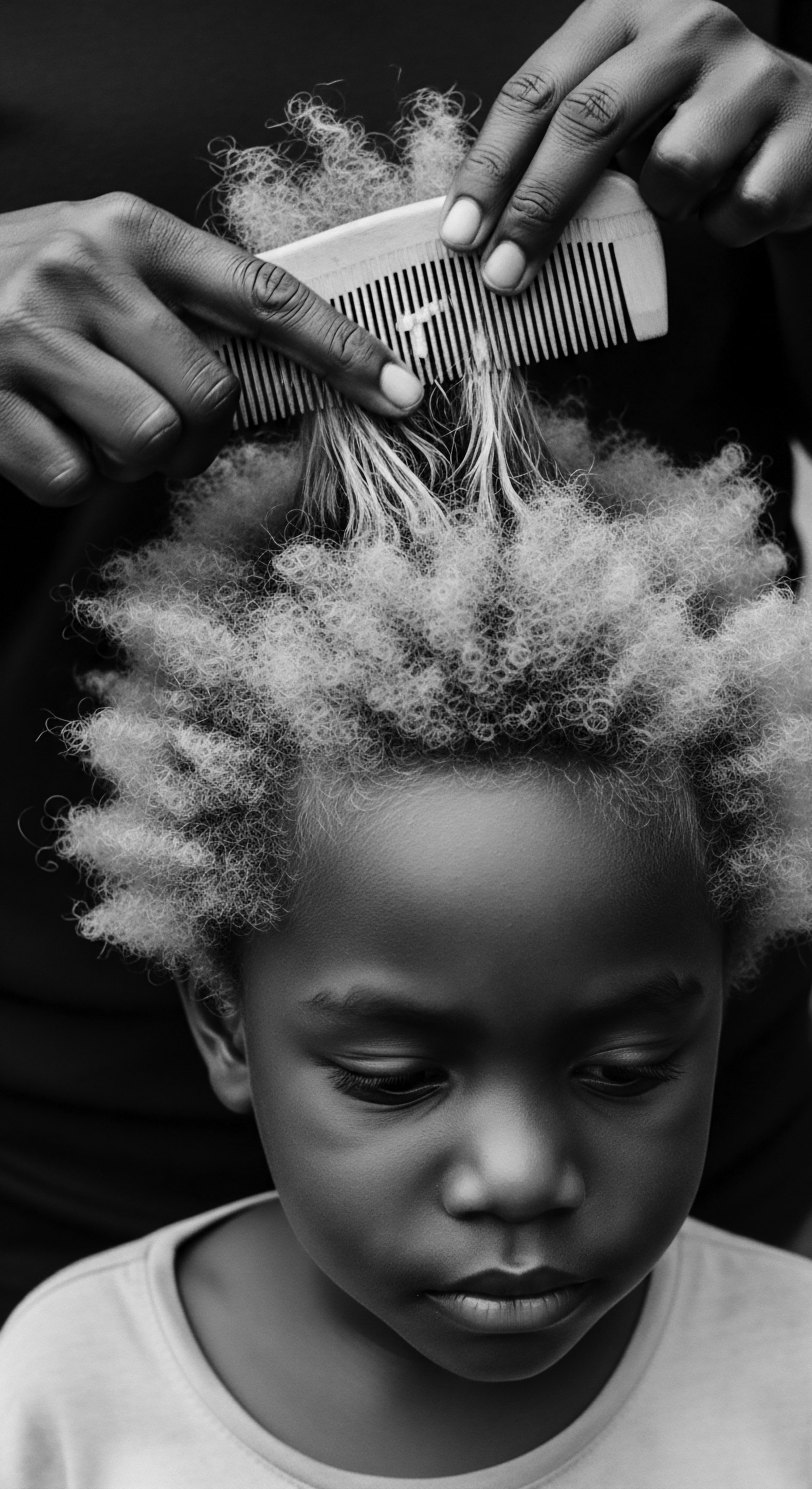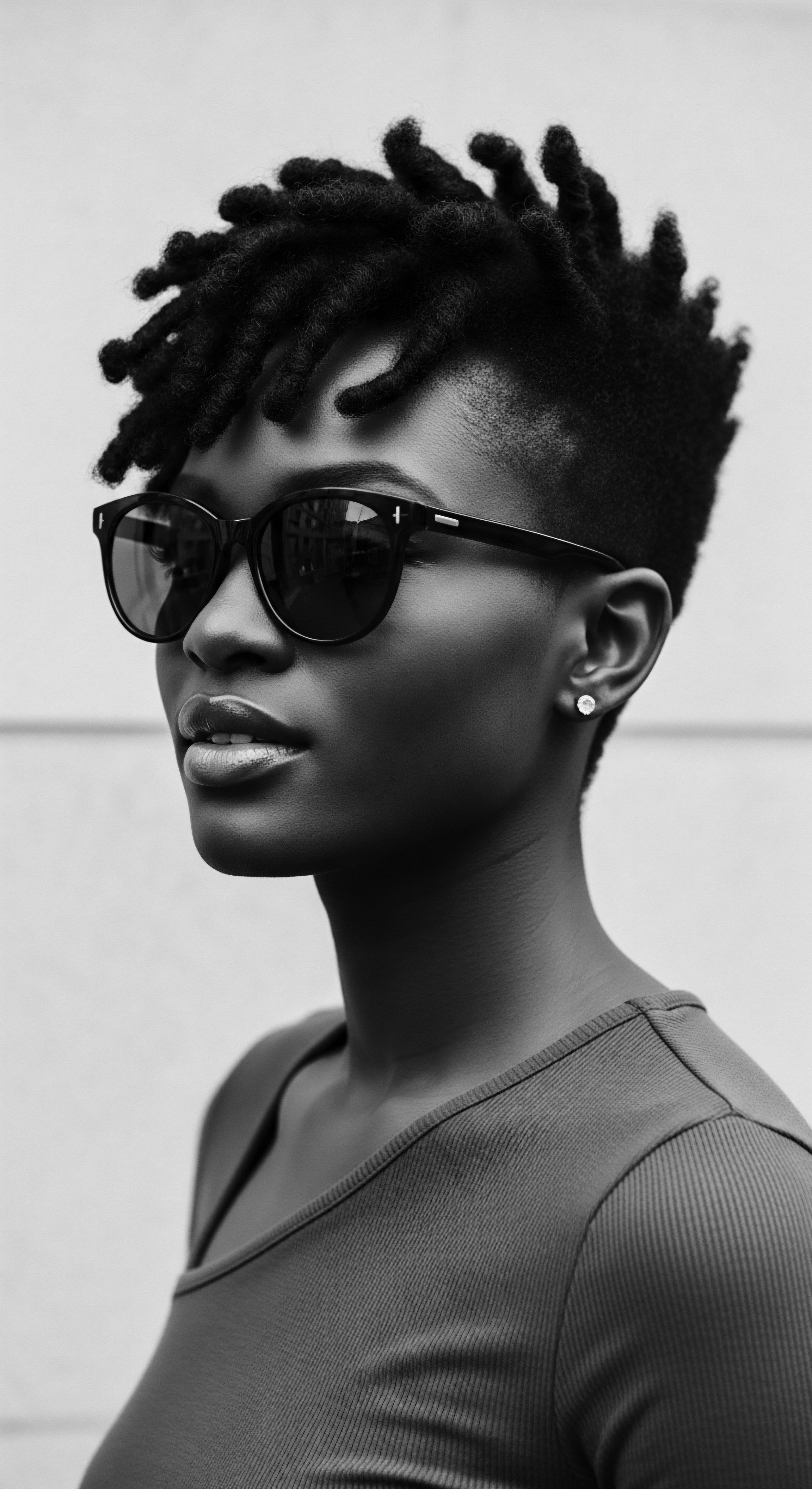
Fundamentals
The Black Love Culture, at its fundamental core, stands as a vibrant, living testament to relationality and kinship, shaped by the historical experiences and enduring spirit of individuals of African descent. Its explication reaches far beyond the boundaries of romantic attachment, extending into the deep reservoirs of communal support, familial devotion, and a profound commitment to collective upliftment. This inherent meaning, steeped in shared ancestry and a resilient past, defines Black Love Culture as a multifaceted expression of connection, a foundational sense of belonging that resonates through generations. It represents a deliberate, conscious endeavor to construct relationships rooted in understanding, mutual respect, and a protective solidarity that has, through time, sustained communities against formidable external pressures.
Consider, for a moment, the intricate biological architecture of textured hair, the very strands that spring from the scalp in myriad formations of coils, kinks, and curls. These physical manifestations of Black and mixed-race heritage are not merely aesthetic; they are foundational to the cultural expression of Black Love. The unique helical structure of these hair types, often characterized by elliptically shaped follicles and varying protein distribution along the shaft, presents distinct requirements for care and nurturing.
This elemental biological reality has, throughout history, demanded specific practices of attentiveness and shared knowledge, fostering bonds that extend beyond individual grooming into the realm of collective ritual and shared wisdom. The very act of caring for Black or mixed-race hair, whether through the meticulous application of traditional emollients or the patient art of styling, becomes an embodied dialogue with ancestral practices, a palpable connection to a lineage of care and understanding.
The earliest expressions of Black Love Culture are intertwined with the ancient traditions of hair care in Africa. Prior to the transatlantic slave trade, hair served as a sophisticated visual language, communicating a person’s tribal affiliation, marital status, age, wealth, and social standing. For instance, certain braided patterns in the Yoruba culture could convey messages to deities, signifying a spiritual dialogue through the hair itself.
The physical act of braiding, often taking hours or even days, became a communal event, a sacred time for women to gather, exchange stories, and transmit oral histories, strengthening familial and community ties. This shared intimacy, unfolding amidst the rhythmic motions of care, speaks volumes about the early meaning of Black Love Culture: a deeply practical, deeply connected, and utterly human experience of nurturing and belonging.
Black Love Culture is a living archive of sustained connection, a testament to resilient kinship and a profound sense of community, with textured hair care practices at its heart.
The notion of ‘love’ within this cultural framework also stretches to a profound self-acceptance, particularly regarding the inherent beauty of textured hair. For many individuals of African descent, natural hair is referred to as “the crown,” a symbol of pride, creativity, spirituality, and a direct link to ancestry. This recognition of hair as a sacred aspect of self, a conduit to the divine in some ancient traditions, directly informs the contemporary significance of Black Love Culture.
It underlines a connection to nature and the cosmos, emphasizing an alignment with one’s authentic self and ancestral lineage. This intrinsic self-love, nurtured through an appreciation of one’s natural hair, then expands outward, contributing to healthier relationships within families and wider communities.
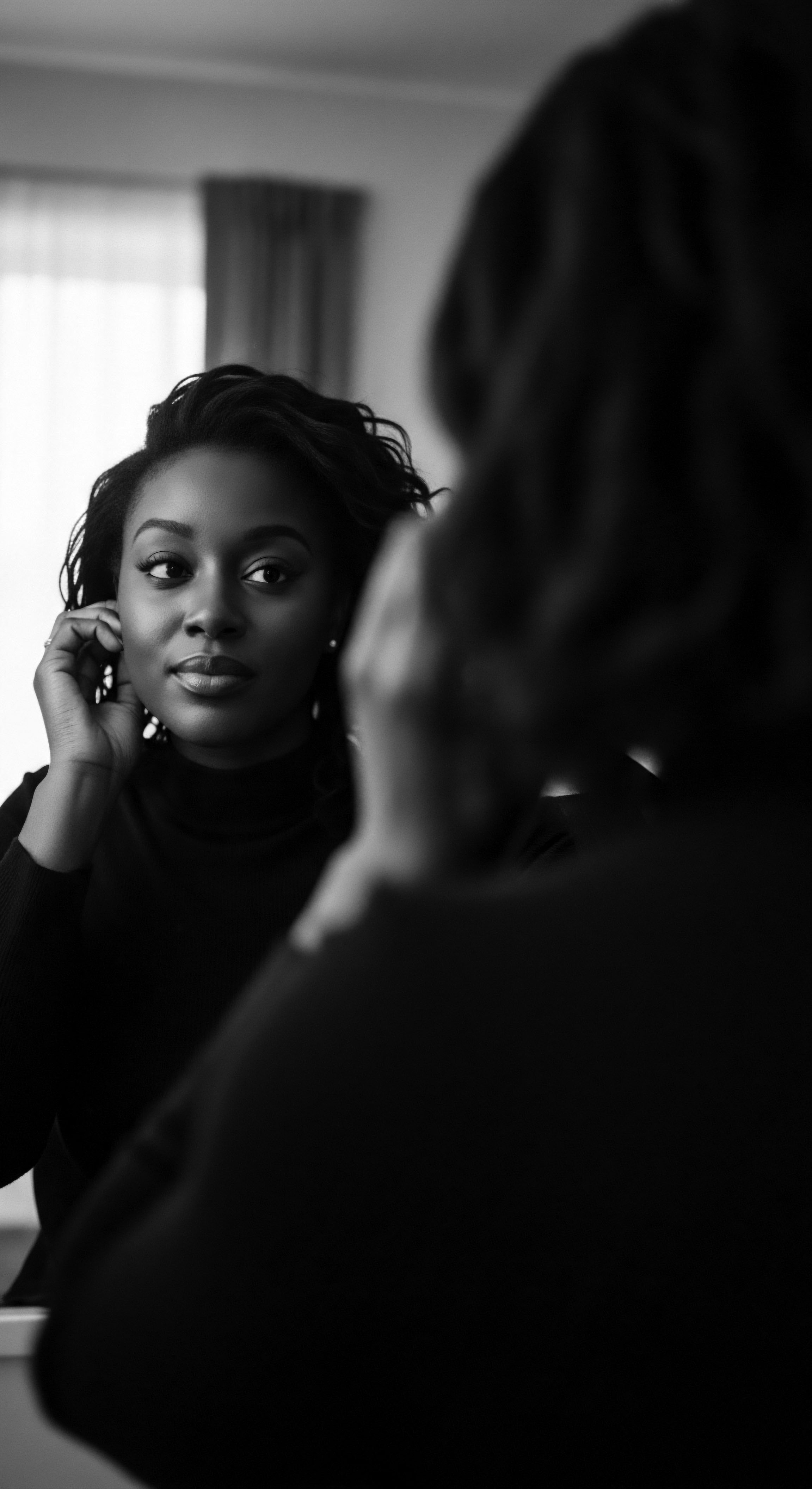
Foundations of Shared Care
- Ancestral Hair Wisdom ❉ Traditional African societies viewed hair care as more than mere hygiene; it represented an intricate system of knowledge encompassing spiritual beliefs, social indicators, and medicinal practices, passed down through matriarchal lines.
- Communal Grooming Rituals ❉ The lengthy, involved process of braiding or styling diverse textured hair often necessitated communal gatherings, evolving into vital spaces for storytelling, shared laughter, and the strengthening of interpersonal bonds.
- Elemental Connection ❉ The application of natural oils, butters, and herbs, sourced directly from the earth, speaks to a deeply rooted understanding of hair as an extension of the body and the natural world, a practice of care that mirrors care for the self and community.
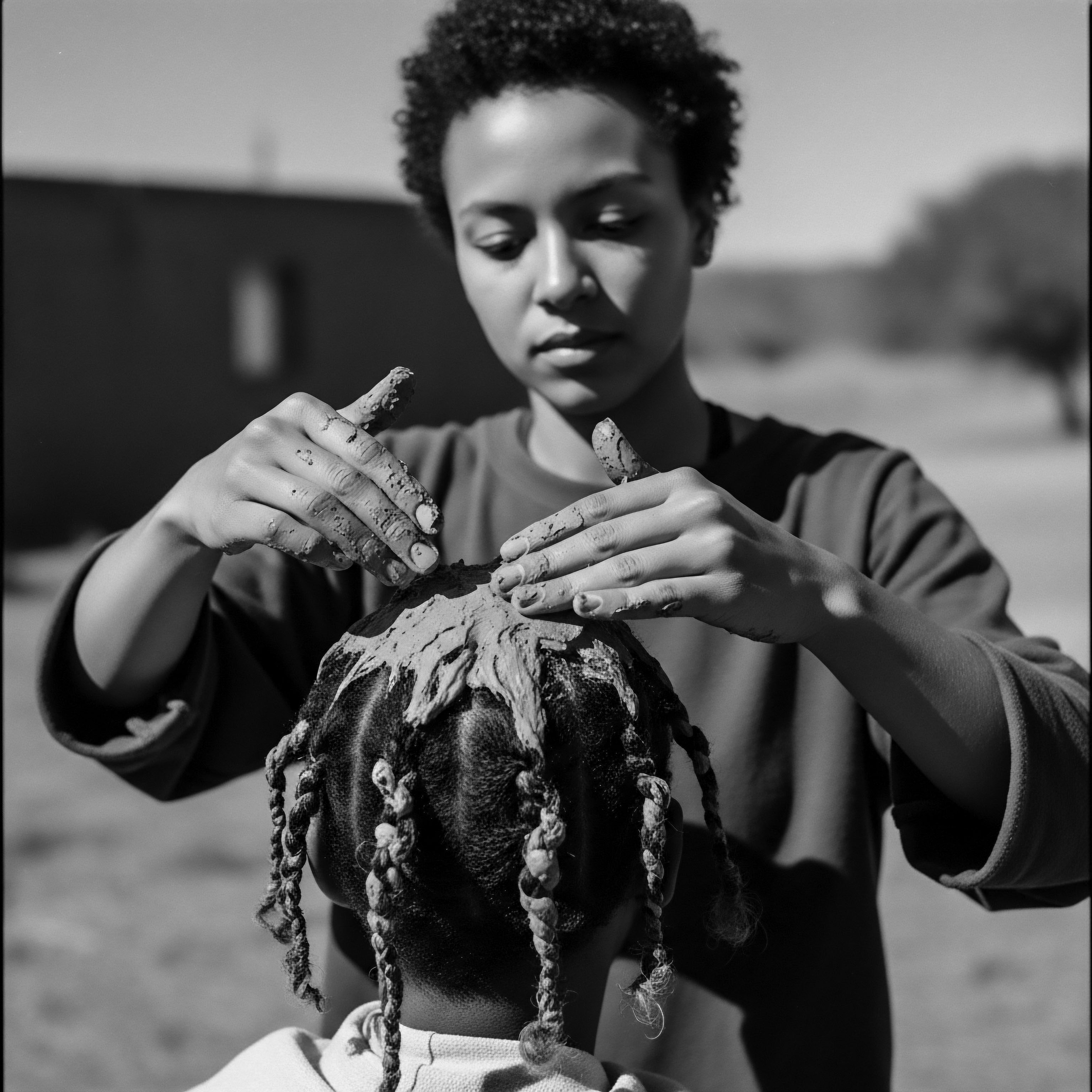
Intermediate
Advancing our understanding of Black Love Culture requires a contemplation of its endurance through periods of immense societal upheaval and imposed redefinition. The transatlantic slave trade drastically severed direct ties to ancestral lands and cultural practices, yet the fundamental spirit of communal care and identity perseverance persisted. Enslaved Africans, stripped of many aspects of their heritage, clung to hair traditions as a powerful act of resistance and resilience. Hair, once a marker of status and tribe, became a hidden repository of meaning, a silent language understood only among those who shared its historical burden.
During slavery, the forced shaving of heads upon arrival in the Americas was a deliberate, dehumanizing act designed to erase cultural identity and sever connections to ancestral practices. Yet, in a striking demonstration of ingenuity and collective will, hair became a tool for survival and communication. In a powerful historical example of hair’s intelligence and resilience, enslaved Africans, particularly in South America, are documented to have used cornrows to create maps and convey messages for escape routes.
This practice, especially prominent in Colombia with figures like King Benkos Bioho who founded the free village of San Basilio de Palenque in the 17th century, involved braiding complex patterns into the hair, depicting paths to freedom, identifying landmarks, or even signifying the presence of soldiers. This extraordinary instance of covert communication demonstrates the profound resourcefulness inherent in Black Love Culture, where the most intimate and personal aspects of identity became instruments of collective liberation.
The historical subjugation of Black hair forged a potent symbol of defiance, transforming personal adornment into a collective act of resistance and a living repository of shared knowledge.
The legacy of this period continues to influence Black Love Culture today, manifesting in complex relationships with textured hair. Eurocentric beauty standards, which historically devalued coiled and kinky hair in favor of straight textures, exerted immense pressure on Black individuals to alter their hair for social and economic acceptance. This societal pressure led to practices like chemical straightening, sometimes with significant physical and psychological costs. However, the resilience of Black Love Culture also birthed movements, such as the “Black is Beautiful” movement of the 1960s, which championed natural hair as a symbol of pride, self-acceptance, and a powerful assertion of identity.
This journey of reclaiming and celebrating textured hair is central to the modern understanding of Black Love Culture. It encompasses an evolving dialogue around hair-esteem, recognizing the deep connection between hair presentation and an individual’s sense of self-worth. Studies show a correlation between higher self-esteem and the choice to wear natural hair, reflecting a positive shift in ethnic pride and social identity. This is not merely an aesthetic preference; it represents a conscious decision to affirm one’s heritage in the face of persistent societal biases.
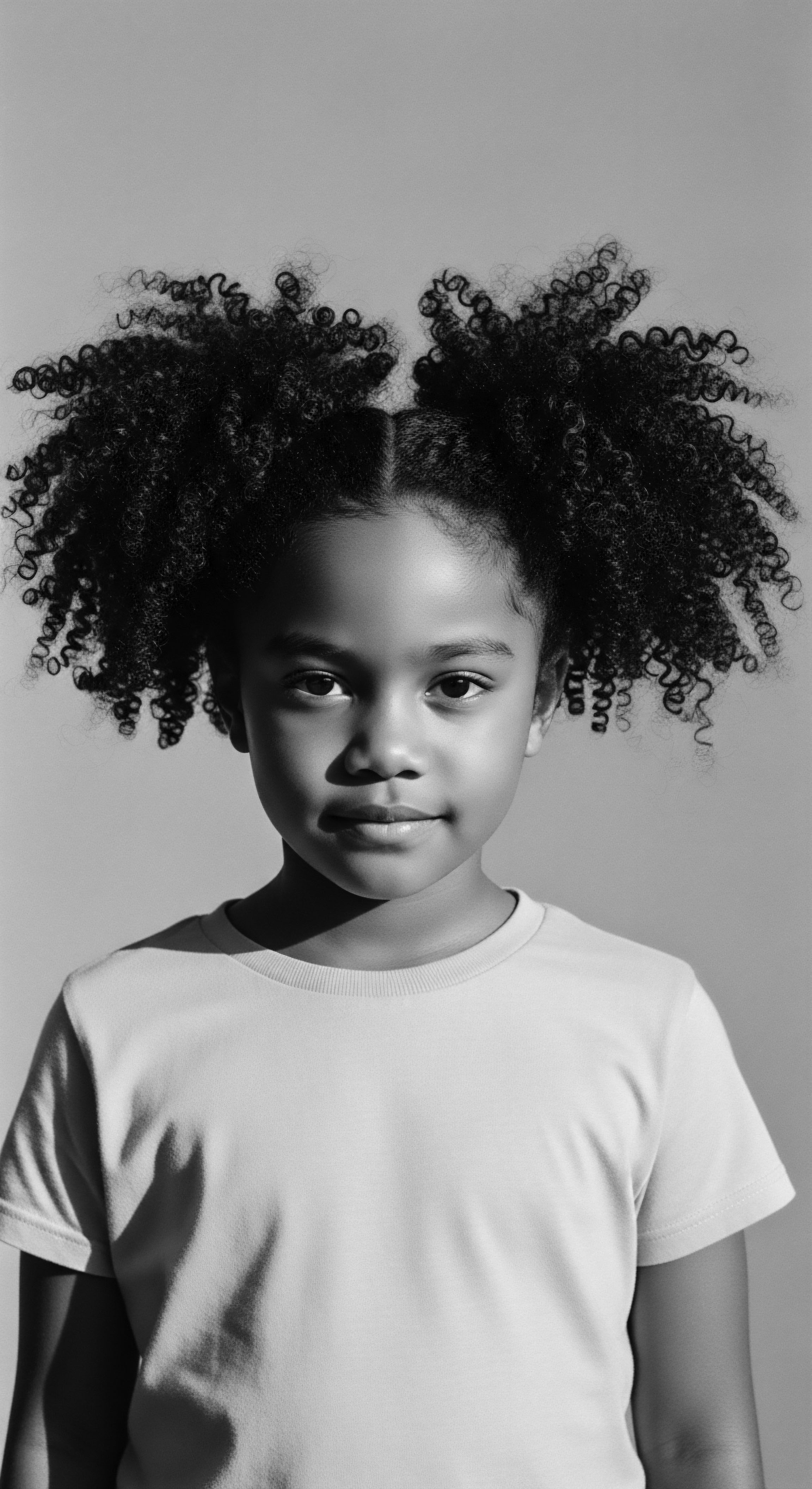
Cultural Resilience Embodied in Hair
The historical context reveals how hair became a canvas for expression and survival, far beyond its biological role. The careful maintenance of hair during slavery, despite limited resources, speaks to an enduring dedication to personal dignity and cultural continuity.
- Ciphered Styles ❉ Cornrows, often named after agricultural elements like ‘cane rows’ in the Caribbean, served as ingenious, concealed maps for escape, demonstrating a profound intersection of daily life, resistance, and hair artistry.
- Symbol of Defiance ❉ The deliberate choice to wear natural hairstyles, such as the Afro during the Civil Rights and Black Power movements, represented a direct challenge to Eurocentric beauty norms and a potent declaration of collective identity.
- Community as Salon ❉ Hair care spaces, from informal gatherings during enslavement to modern-day salons, have consistently served as vital communal hubs where wisdom is shared, bonds are strengthened, and cultural identity is reinforced.
The societal landscape around Black hair remains complex, but Black Love Culture provides a framework for navigating these challenges with strength and solidarity. It advocates for spaces where textured hair is celebrated as a source of beauty and power, rather than a point of contention. This continuous process of affirmation, both individual and collective, contributes to a robust sense of self and community, strengthening the familial bonds that form the bedrock of Black Love.
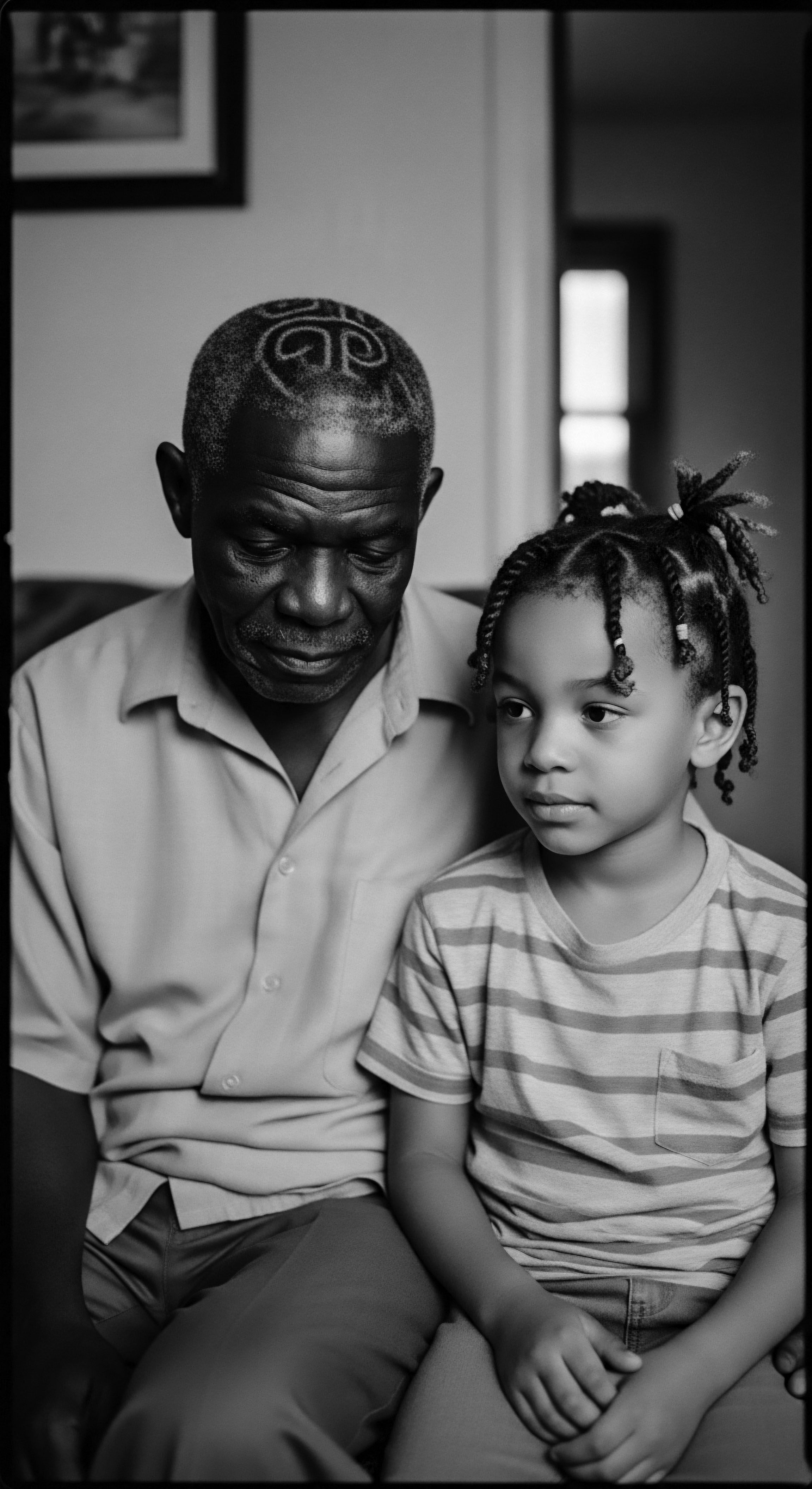
Academic
The Black Love Culture, from an academic perspective, represents a nexus of sociological, psychological, and historical phenomena, embodying a sophisticated framework for understanding relational well-being within the African diaspora. Its precise definition, far from being a simple romantic notion, is a complex constellation of intergenerational care, communal resilience, and identity affirmation, especially as it intersects with the lived experiences of textured hair. This culture is a powerful counter-narrative to centuries of systemic devaluing of Black bodies and traditions, asserting a distinct and self-determined standard of beauty and belonging.
At its conceptual foundation, Black Love Culture delineates a framework of interpersonal and communal relationships that are forged, sustained, and deepened by shared cultural heritage and the unique challenges faced by Black communities globally. It signifies a collective commitment to fostering psychological well-being, economic stability, and social justice within these relational contexts. This definition moves beyond the romantic dyad, encompassing the broader spectrum of familial connections, friendships, and community solidarity that collectively contribute to the flourishing of Black individuals and groups. The significance here lies in its intentionality: Black Love Culture is not an incidental byproduct of shared circumstance, but a deliberate, cultivated practice.
The connection to textured hair heritage is a particularly potent lens through which to examine this culture. Hair, as a corporeal marker, has historically been a primary site for the inscription of racialized power dynamics. Judith Butler’s concept of gender as performative, maintained by iterative repetitions in social interaction (Butler, 1990), finds a compelling parallel in the ‘performance’ of Black hair and its role in identity construction.
The texture of Black hair, often deemed ‘unruly’ or ‘unprofessional’ by Eurocentric standards, forced Black women, in particular, into a constant negotiation of identity. This pressure to conform, often through chemical straightening or other altering practices, carried significant psychological and physical costs, including internalised racism and diminished self-esteem.
However, the enduring power of Black Love Culture is evidenced in the emergence of movements that actively resisted these external impositions. The “natural hair movement,” rooted in the “Black is Beautiful” ethos of the 1960s, represents a profound act of collective agency, re-centering Afrocentric aesthetics as beautiful and valuable. This shift was not merely stylistic; it was a sociopolitical statement, a reclamation of bodily autonomy, and a powerful manifestation of self-love that directly informed the deeper relational meaning of Black Love Culture. As Rajan-Rankin (2021) notes, “Black hair practice thus has socio-historical and temporal relevance, with encoded meanings of what it means to be ‘Black,’ passed on across generations, in the intimate art of grooming and braiding.”
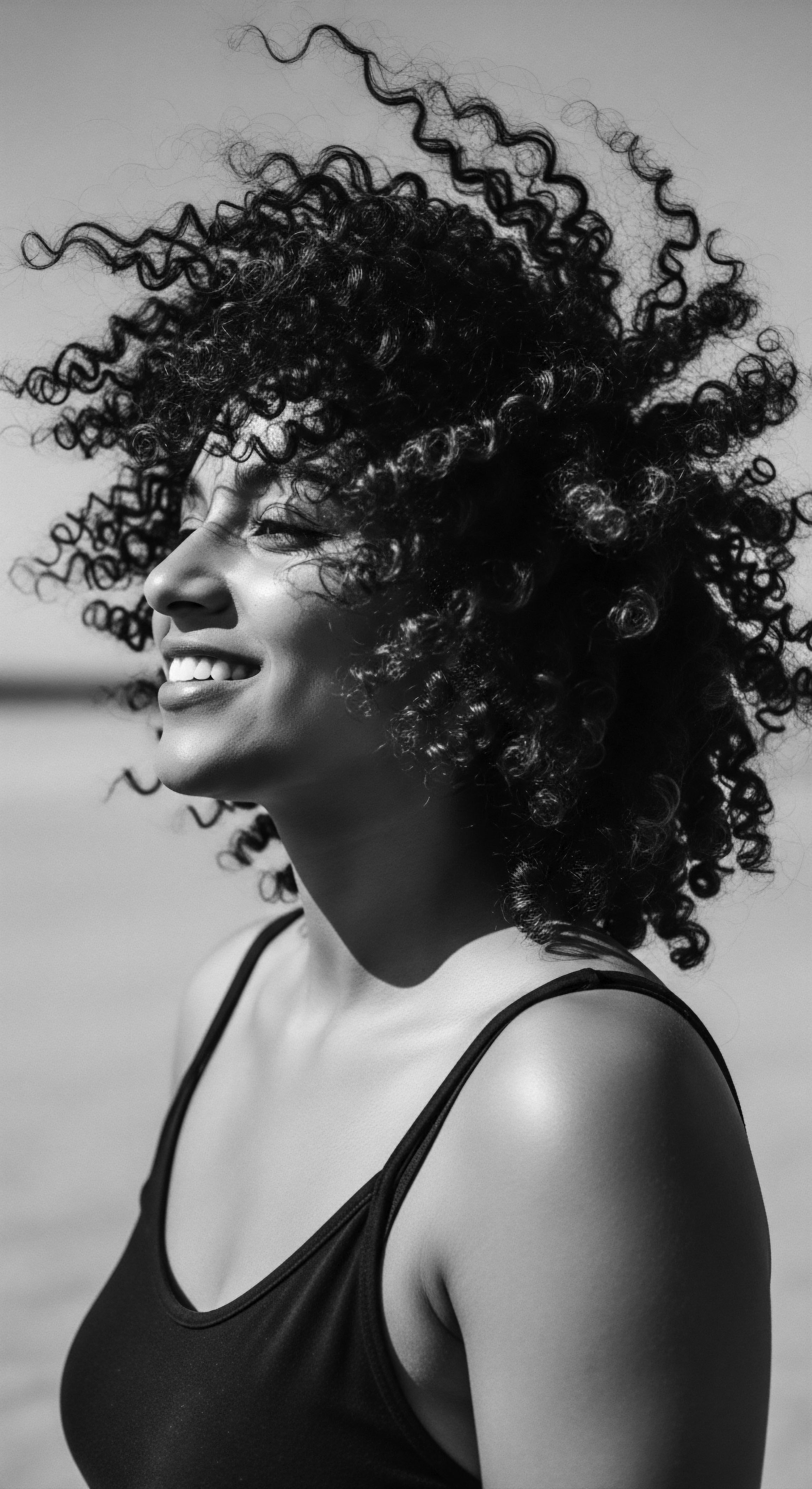
Psychosocial Dimensions of Hair and Identity
Research highlights the profound psychological implications of hair for Black women. For instance, a study examining Black women’s hair experiences and self-esteem found that hair-related negativity from supervisors correlated with lower hair self-esteem (Hamilton, 2017). Conversely, another study, using a survey of Black students and employees at a U.S.
university (n=69), determined that natural hair was correlated with positive self-esteem (Blackshear & Kilmon, 2021). This demonstrates how external perceptions and societal norms can profoundly affect an individual’s internal sense of worth, while embracing natural hair can serve as a conduit for self-affirmation and pride.
The concept of “hair-esteem,” a measure of self-worth tied to an individual’s hair, gains prominence in this discourse. The conscious decision to wear natural hair is increasingly viewed as an act of resistance against gendered racism and Eurocentric beauty standards. This choice, often involving a process of identity negotiation and learning new care practices, represents a powerful affirmation of one’s Blackness and a rejection of negative stereotypes. The emotional impact of microaggressions related to hair, including anxiety, hypervigilance, and cultural disconnection, reveals the mental health toll of navigating these societal pressures.
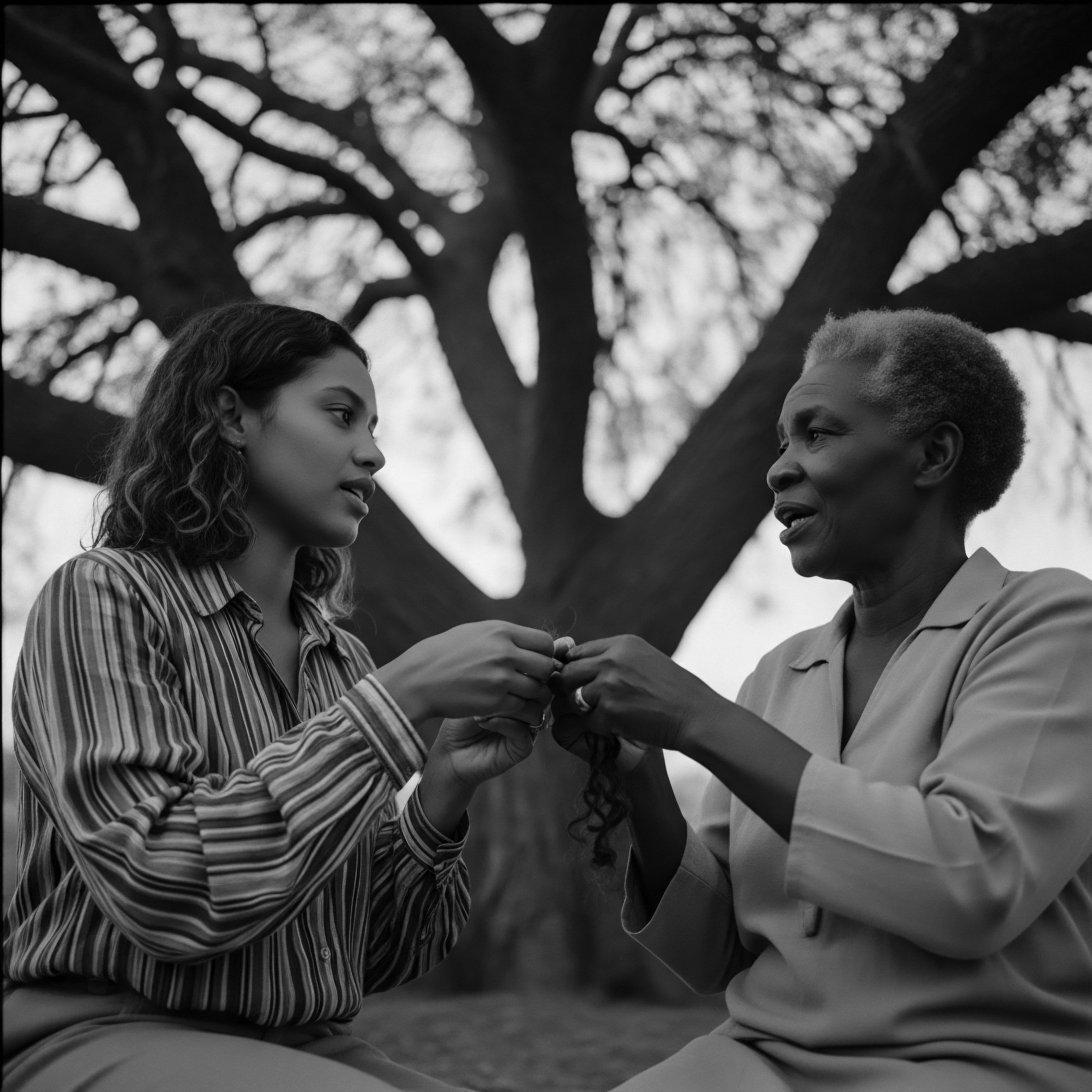
Ancestral Wisdom and Modern Science
The enduring connection between Black Love Culture and hair care is also illuminated by examining ancestral practices through a scientific lens. Traditional African hair care, relying on natural ingredients and meticulous techniques, was rooted in a deep understanding of hair’s unique structural and biological needs. For example, the use of natural oils and butters for moisture retention, a practice central to traditional care, aligns with contemporary trichological understanding of coiled hair’s propensity for dryness due to its elliptical shape and fewer cuticle layers compared to straighter textures.
The knowledge transmitted through generations of hair care, often within the communal setting of the home or salon, represents an invaluable form of embodied knowledge. Lanita Jacobs-Huey’s work, From the Kitchen to the Parlor: Language and Becoming in African American Women’s Hair Care (Jacobs-Huey, 2006), dissects the linguistic and social dynamics of these spaces, revealing them as critical sites for cultural transmission and identity formation. The rituals of washing, detangling, oiling, and styling become conduits for not only physical care but also for sharing narratives, offering emotional support, and reinforcing collective identity.
The persistent pressure on Black women to alter their hair to fit Eurocentric norms is not merely a social phenomenon; it carries biological implications. Frequent chemical treatments or excessive heat styling can compromise hair integrity, leading to breakage and scalp issues. The natural hair movement, supported by Black Love Culture, therefore also promotes a return to practices that prioritize hair health and integrity, aligning ancestral wisdom with scientific understanding of optimal care for textured hair. This holistic approach views hair health as an aspect of overall well-being, linking physical care to psychological freedom and cultural pride.
In conclusion, the academic understanding of Black Love Culture, particularly through the prism of textured hair, positions it as a dynamic, resilient, and deeply meaningful cultural construct. It is a testament to the enduring power of communal bonds, self-affirmation, and strategic resistance in the face of historical and ongoing oppression. The cultivation of healthy relationships and self-acceptance, embodied in the celebration and care of Black and mixed-race hair, forms a vital component of this profound cultural phenomenon.
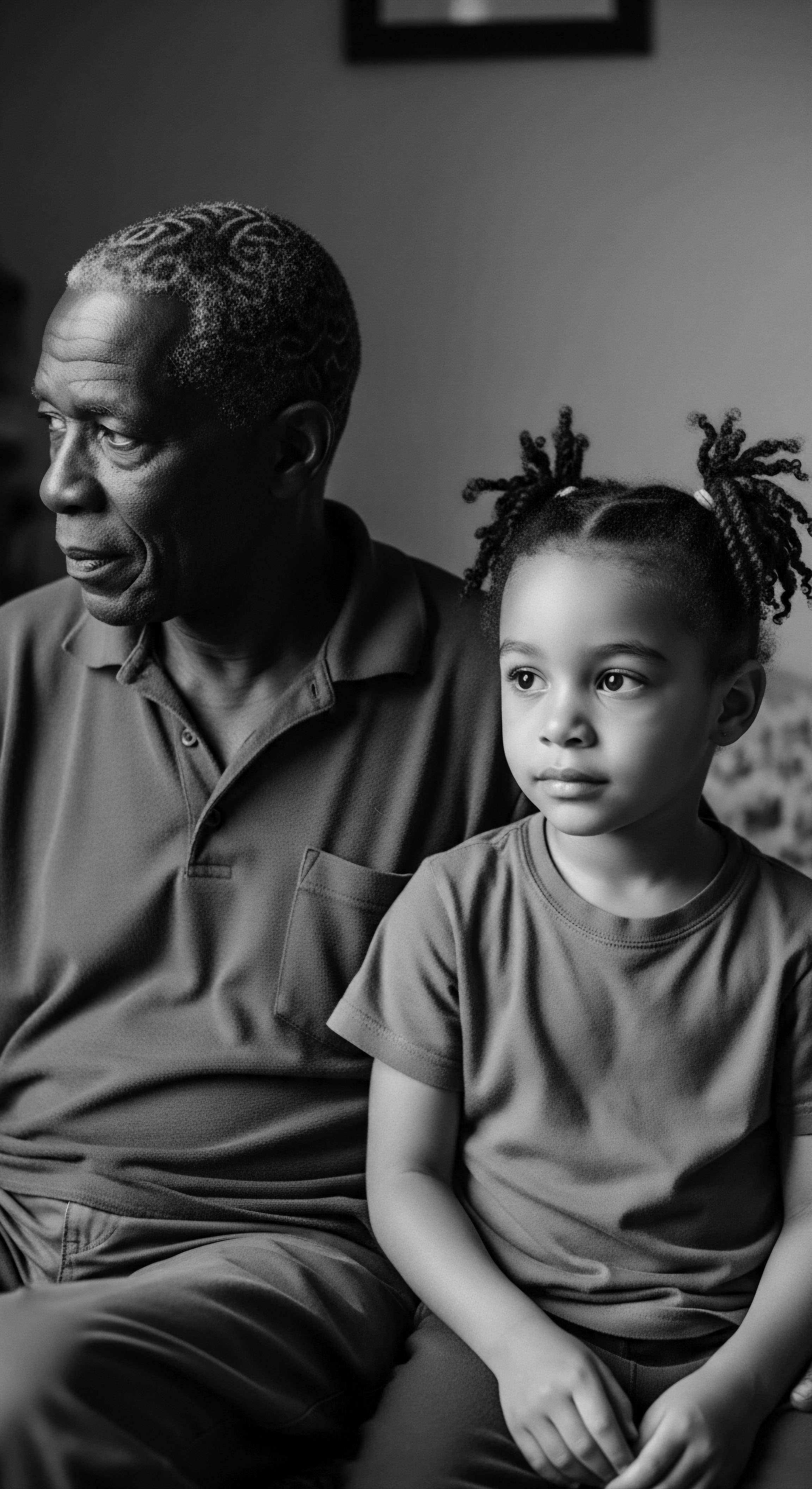
Reflection on the Heritage of Black Love Culture
The journey through the definition of Black Love Culture, particularly through the lens of textured hair heritage, is a profound meditation on resilience and enduring beauty. From the elemental biology of the strand, echoing ancient practices, to the vibrant expressions of identity shaping contemporary futures, a continuous thread of care and communal wisdom unfolds. It becomes clear that hair, in its myriad coiled and kinked forms, is not merely a biological appendage; it stands as a living, breathing archive of ancestral memory, cultural fortitude, and collective love.
The tender touch of a mother braiding her child’s hair, a timeless ritual passed down through generations, embodies the very essence of Black Love Culture. These moments, steeped in shared silence or the soft murmur of stories, connect the present to an ancient past where hair communicated lineage, status, and spirit. The historical memory of cornrows as clandestine maps for freedom, a poignant testament to human ingenuity against unfathomable odds, is indelibly etched into the cultural consciousness. It reminds us that every coil holds a story, every pattern a legacy, and every act of care a continuation of defiance and devotion.
Every coil, every kink, every curl is a testament to an unbroken lineage of strength, beauty, and ancestral love.
In our contemporary world, where the echoes of historical discrimination against textured hair still reverberate, the purposeful choice to honor natural hair is an act of profound self-love and communal affirmation. It is a reclamation of narratives, a defiant celebration of inherent beauty that radiates outward, enriching families and strengthening communities. This holistic approach, where care for the hair aligns with care for the spirit and connection to heritage, embodies a wellness philosophy rooted deeply in ancestral wisdom. It is a dance between scientific understanding and intuitive knowledge, a harmonious blend that offers profound lessons for all.
The Black Love Culture, through its unwavering dedication to its hair heritage, illustrates how the pursuit of genuine connection and collective well-being can transform even the most challenging legacies into sources of immense power and beauty. The evolution of Black and mixed-race hair experiences, from forced subjugation to celebrated self-expression, mirrors the enduring strength of a people who have consistently found ways to nurture love, foster unity, and declare their worth, one sacred strand at a time. This enduring legacy serves as a beacon, illuminating the path toward a future where every curl, every kink, every textured crown is revered as a testament to the profound, unbound helix of shared human experience.
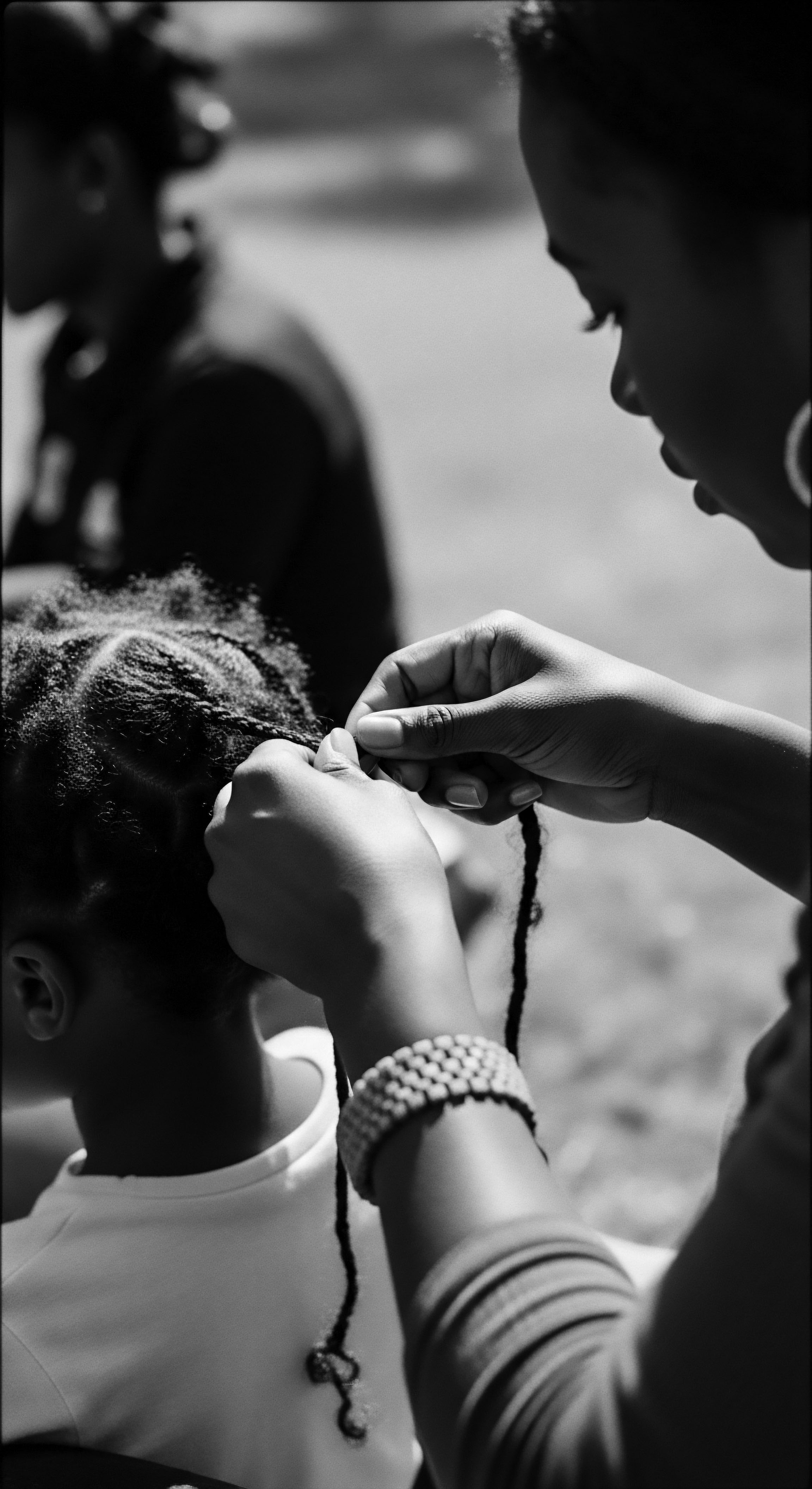
References
- Banks, I. (2000). Hair Story: Untangling the Roots of Black Hair in America. St. Martin’s Press.
- Byrd, A. & Tharps, L. (2001). Hair Story: Untangling the Roots of Black Hair in America. New York: St. Martin’s Press.
- Butler, J. (1990). Gender Trouble: Feminism and the Subversion of Identity. Routledge.
- Dabiri, E. (2019). Twisted: The Tangled History of Black Hair Culture. Harper Perennial.
- Hamilton, G. (2017). Black Women and Identity: What’s Hair Got to Do With It? (Master’s thesis, University of Michigan).
- Jacobs-Huey, L. (2006). From the Kitchen to the Parlor: Language and Becoming in African American Women’s Hair Care. Oxford University Press.
- Johnson, T.A. & Bankhead, T. (2014). Hair it is: Examining the experiences of Black women with natural hair. Open Journal of Social Sciences, 2, 86-100.
- Rajan-Rankin, S. (2021). Material intimacies and Black hair practice: Touch, texture, resistance. Nordic Journal of Feminist and Gender Research, 29(3), 152-164.
- Rooks, N. (1996). Hair Raising: Beauty, Culture, and African American Women. Rutgers University Press.
- Hussett-Richardson, S. (2023). “Hair-Esteem Toolkit for Black Girls”: The development of a self-esteem toolkit for Black adolescent girls centering hair as a tool for empowerment. (Master’s thesis, Yale School of Public Health).

